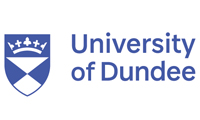
A lifetime careers service offer sets the University of Dundee apart from competitors, while embedding careers-focused modules into courses has been impactful for many students
University of Dundee graduates have full, lifetime access to the university’s careers service, and the university’s impressive record on employability is a testament to the success of this approach. According to the latest Graduate Outcomes survey, 90 per cent of respondents are now in employment or further study.
All of the university’s Scotland-based undergraduates from the class of 2019/20 entered positive destinations – this includes higher education, further education, employment, training, personal skills development and voluntary work – up from 94 per cent the previous year.
The careers and alumni teams support employability in a number of ways. Like many universities, the careers service offers bookable appointments in person and online. Online appointments became more popular during the pandemic and have continued to support students’ desire for flexibility. “Some people like the opportunity to chat in person but if you’re a nurse on placement, for example, it’s more convenient to do something online during a break,” says Shona Johnston, head of careers at the university.
After two years during which careers fairs became virtual and many internships were paused due to lockdowns, one of the core roles of the careers service is to build students’ confidence in career basics such as polishing their CVs or preparing for an interview. The team offers mock interviews so students can get feedback on their responses, while workshops on common career questions are also popular. Everything is done with one eye on what employers are looking for, Johnston says: “We change our provision every year and have continuous improvement meetings every fortnight. Everything we offer is informed by employers.”
Although students are encouraged to interact with the service right from the start of their degree, there are also graduate bootcamps for those who have left career decisions until their course ends. “We have to think about the students that don’t come and see us,” says Johnston. “We work hard with our academic colleagues on embedding employability into the curriculum.” Certain disciplines such as business or engineering incorporate an employability component where students gain hands-on skills experience or work with employers as part of their course.
“In other subjects, this is more of a challenge as the curriculum is less fixed,” Johnston says. During their second year, students that don’t have a placement option can pick up a module where they complete a “micro-internship”, which could involve working with a charity or other organisation connected to the university. This is a 30-hour placement that can fit easily around studies and is often a student’s first taste of work experience.
There is a weekly classroom session where the student can raise any questions and learn how to apply the knowledge they have gained in the world of work. “This is core to what we’re about as a careers service as this doesn’t depend on the student having a network to gain experience. It also helps them to think about what’s next and articulate their experience,” she adds. This and other career-focused modules are credit-bearing and assessed as any academic module would be.
Alumni also play an important role in educating students about career options and building links with employers, says Pamela Lawrence, alumni relations and major events manager at the university. Dundee takes a two-pronged approach: alumni stories help to recruit students and enhance the student experience, while the university supports those alumni with their own career advice and networking opportunities.
Graduates regularly support career panels, talk to student societies and help students with applications to popular graduate programmes. “They’ve been here and had the experience themselves so there’s a sense of goodwill,” Lawrence explains. Once new graduates enter the alumni community, they are reminded they have lifelong access to the careers service. Lawrence and her team are building a network of alumni globally so they can offer networking opportunities in many countries.
The university connects to alumni through existing university social media channels as well as face-to-face events, magazines and email. “We want to be creative about what we do so we’re always refreshing our offer and thinking of new ideas,” Lawrence says. One event planned for 2023 will focus on “things they never told you about” when joining the workforce, as often students have limited experience of the workplace, particularly after the pandemic moved much learning online. It also helps to hear from ex-students rather than employers about the reality of working somewhere, says Johnston: “Students want to get a feel for what an organisation is really like as opposed to the polished graduate recruitment brochure.”
Another programme that supports students with employability is the university’s Dundee Plus programme, which helps students build transferable skills through a number of extracurricular awards. With the support of alumni mentors, students learn how to articulate the skills they have to employers and be more confident talking about themselves during the recruitment cycle.
Careers education is increasingly embedded into the curriculum, and this approach is proving to be effective. In 2018, a group of researchers at the university looked into the impact of offering credit-based careers modules as part of the curriculum. More than two-thirds (64 per cent) of graduates who took a careers module felt confident about making career decisions after they graduated, compared with 31 per cent of those who did not take one.
Furthermore, the odds of finding graduate level employment were 40.1 percentage points higher if a career module was undertaken. “We know we have good results in terms of graduate prospects but we’re perfectionists and it’s not only about the statistics,” says Johnston. “It’s also important to know that final year students feel they have a plan and know what they are doing, even if they have no job yet.”
Find out more about the Careers Service at the University of Dundee.

